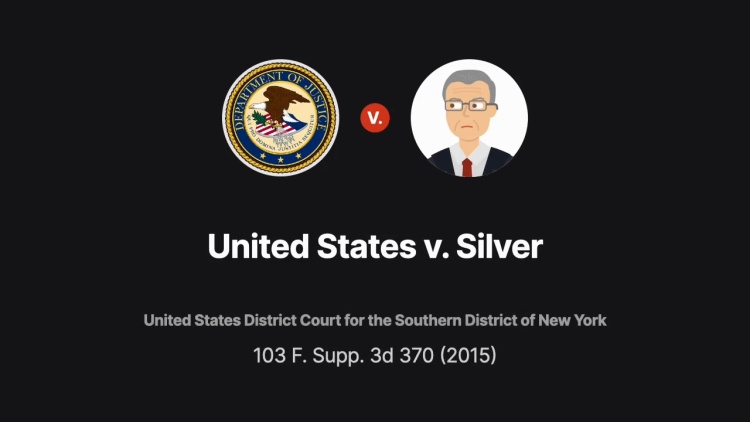United States v. Silver
United States District Court for the Southern District of New York
103 F. Supp. 3d 370 (2015)
- Written by Rose VanHofwegen, JD
Facts
The federal government (plaintiff) filed a sealed complaint charging former New York Assembly speaker Sheldon Silver (defendant) with corruption. Silver agreed to surrender and was driven by unmarked car to the courthouse for processing. But the press started reporting about the arrest and the charges’ substance in the early morning hours beforehand, despite the complaint remaining sealed. Former U.S. attorney Preet Bharara held a press conference and issued a press release. Bharara emphasized the charges remained only allegations, but criticized the corrupt culture of local politics and suggested Silver monetized his office. His office tweeted Bharara’s comments: “Bharara: Silver monetized his position . . . and misled the public about his outside income,” and “Bharara: Politicians are supposed to be on the ppl’s payroll, not on secret retainer to wealthy special interest they do favors for.” The next day, Bharara gave a publicized speech and chose to address corruption and Silver’s charges because of the timing. When MSNBC interviewed Bharara, he again impugned Silver, suggesting he “sold his office to line his pockets.” The grand jury indicted Silver shortly afterward. Claiming Bharara’s remarks caused irreparable harm, Silver moved to dismiss the indictment, or at least to poll the grand jury and disclose its minutes to detect improper influence.
Rule of Law
Issue
Holding and Reasoning (Caproni, J.)
What to do next…
Here's why 907,000 law students have relied on our case briefs:
- Written by law professors and practitioners, not other law students. 47,100 briefs, keyed to 996 casebooks. Top-notch customer support.
- The right amount of information, includes the facts, issues, rule of law, holding and reasoning, and any concurrences and dissents.
- Access in your classes, works on your mobile and tablet. Massive library of related video lessons and high quality multiple-choice questions.
- Easy to use, uniform format for every case brief. Written in plain English, not in legalese. Our briefs summarize and simplify; they don’t just repeat the court’s language.





